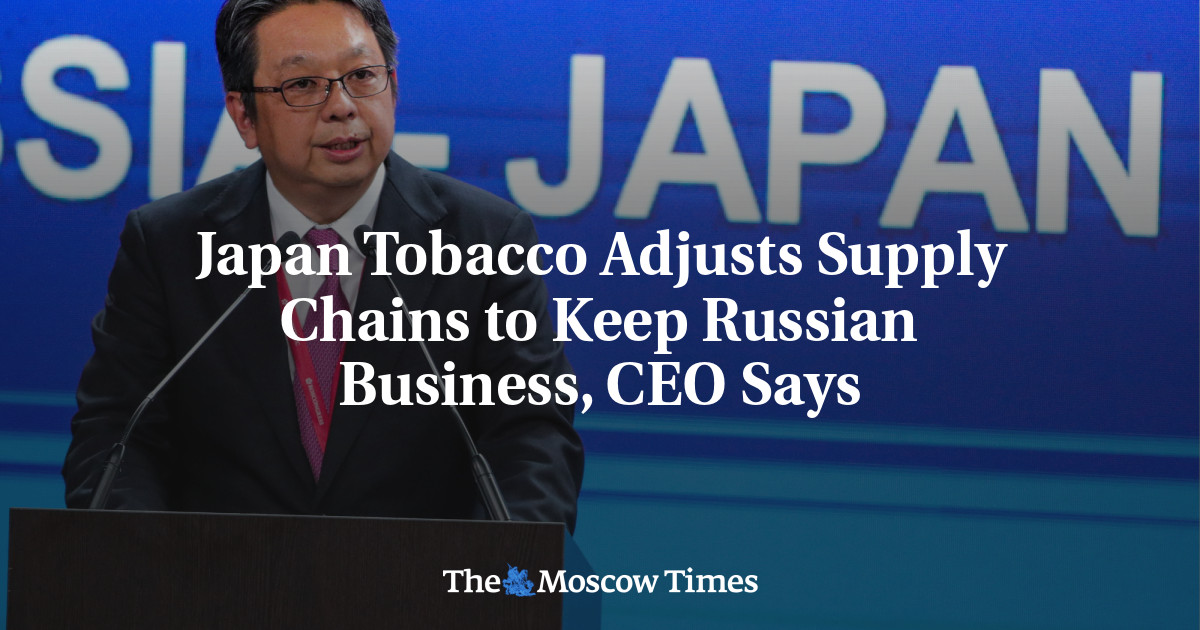


The cigarette maker Japan Tobacco has adjusted its supply chains to comply with Western sanctions against Moscow and keep its business operating in the lucrative Russian market, the company’s CEO Masamichi Terabatake told the Financial Times.
“We are making various efforts to ensure a sort of a ring-fence, by sending things from Turkey, for example, since there are countries that cannot do trade with Russia,” Terabatake was quoted as saying.
“There are various things we need to be careful of from sanctions — what kind of people can be involved or not in decision-making, excluding people from unfriendly countries for Russia’s management… to putting people unrelated to sanctions in places such as Hong Kong,” he added. “But otherwise, it’s business as usual.”
The changes, which include moving key personnel to Hong Kong and routing some business through Turkey, took around a year to complete, Terabatake said.
Japan Tobacco, which produces Winston, Camel and domestic Russian brands, originally said it would consider selling its Russian business in response to the war in Ukraine. Instead, the company suspended investment and marketing activities in Russia but decided to keep four factories and more than 4,000 employees at its Russia unit.
Initial investor scrutiny about Japan Tobacco’s reputation losses for continuing trade in Russia has since receded, according to the CEO.
Russia, the world’s fourth-largest tobacco market, accounts for one-fifth of Japan Tobacco’s global profits, which totaled $3 billion in 2023, Terabatake told FT.
Japan Tobacco was among the top earning foreign companies in Russia in 2022, the year when Russian troops invaded Ukraine, but the company’s Russian subsidiary did not pay dividends in 2022 and 2023.
Hundreds of Western companies have either fully exited or suspended operations in Russia since Moscow launched its full-scale invasion, but Ukrainian researchers estimate that more than 1,300 continue doing business in Russia.
Japan has joined Western countries in imposing war-related sanctions on Russia but has not reduced its presence in Russian energy projects due to Tokyo’s reliance on Russian liquefied natural gas.